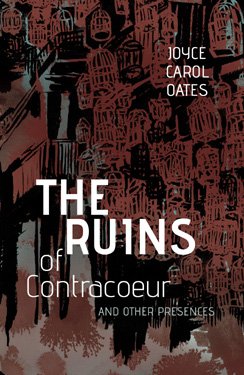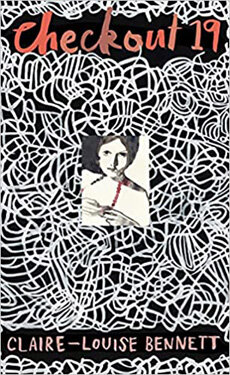Some literary writers create a character who they continuously return to in a series of books and (because that character is an author) seem to be an obvious foil for the writer themselves. “Oh William!” is the third book in a series after “My Name is Lucy Barton” and “Anything is Possible”. I'm not trying to suggest Lucy is directly based on Strout's own personality and past – I think it's more that she's become a way for the author to chart feelings of what ageing and experience do to a person over time. Since it's been five years since we readers were first introduced to Lucy we're also older and more experienced (if we've been following her story since the beginning). In this new novel Lucy becomes an even more more dynamic and rounded character as we learn more about her history, her point of view and her continuing quest to understand her position in the world.
This book picks up with Lucy later in her life after the death of her beloved second husband. When her first husband William discovers he has a half-sister Lois whom he's never met he invites Lucy to join him on a journey to Maine where Lois lives and where his mother Catherine had an early first marriage which she ran away from. It's a road trip novel, but it's also about the complex evolution of Lucy's relationship with William over time. This isn't about will they or won't they get back together. It's more about the meaning they have in each other's lives and how the people who know us the best can both support and stultify us. In some ways, it's also about the contrast between Lucy and her mother-in-law Catherine's lives. Both women came from very impoverished families but grew to succeed and inhabit respectable positions in the world yet they inhabit adulthood with very different levels of confidence.
Strout is a master at describing great subtlety of feeling using language and a style of writing that's very approachable and enjoyable to read. A large part of the pleasure of this book derives from having read the first two novels so I'm not sure I'd recommend reading this new book without having read the previous books. However, for me, it's a joy returning to Lucy's voice and disconcertingly existential point of view. She describes how “I have always thought that if there was a big corkboard and on that board was a pin for every person who ever lived, there would be no pin for me. I feel invisible, is what I mean.” Yet her understanding and sense of self grows over the course of this story and ultimately leads her to admit “I am not invisible no matter how deeply I feel that I am.” William sometimes has an abrasive demeanour and this journey reminds her of that and why they separated, but they also share a history and a heightened sense of intimacy. For instance, they still use pet names with each other. It's these interactions and the sense of a longstanding bond with William, her daughters and others which cement her place in the world rather than the accomplishments which come from being a successful author.
This is also a story about the process of memory. Although Lucy is sincere and open we're made to wonder if her memories are entirely true when she makes statements such as “It is easy to recall this now, but in my memory it is true.” There are emotionally painful subjects she often prefers to avoid and self consciously states she doesn't want to talk about or discuss anymore since they were already covered in the first two books by Strout (and the memoirs Barton has written within the story.) But there are moments and experiences she naturally circles back to as they were pivotal aspects of her life which have influenced and haunt her. These can be small details such as Catherine's tangerine coloured couch which takes such a presence in her recollections of her mother-in-law. Or she alights upon striking metaphors for encapsulating more universal experiences of the past. I love how she describes the feeling of “the curtain of childhood” around her when recalling the terror and frustrations of youth. This so accurately captures that feeling of being shrouded in naivety when we're young.
However, despite there being many poignant moments and this being such a pleasurable book to read I don't think it's Strout's best. The story itself is quite meandering and leisurely so it doesn't feel as focused as the previous novels. This is partly due to the style of narrative where we so closely follow Lucy's thought process and reasoning. Some sections end too wistfully with lines such as “But who ever really knows the experience of another?” Nevertheless, I personally enjoyed the experience of reading this book so much because it felt tremendously comforting and contains some poignant reflections. There are also points of reference and in-jokes about the experience of being in Maine such as the fact Mainers eat their meals so early which makes Lucy wonder: “When does anybody in this state eat?” But primarily I appreciate the thoughtful distinction this story makes between inhabiting somewhere and feeling like you belong. I know it will be enjoyable to go back to the previous two books and read this series in order to pick up on more clues and follow Lucy's gradual transformation. So, while this new novel might not be among the best books I've read this year, it is one of the most pleasing.


















